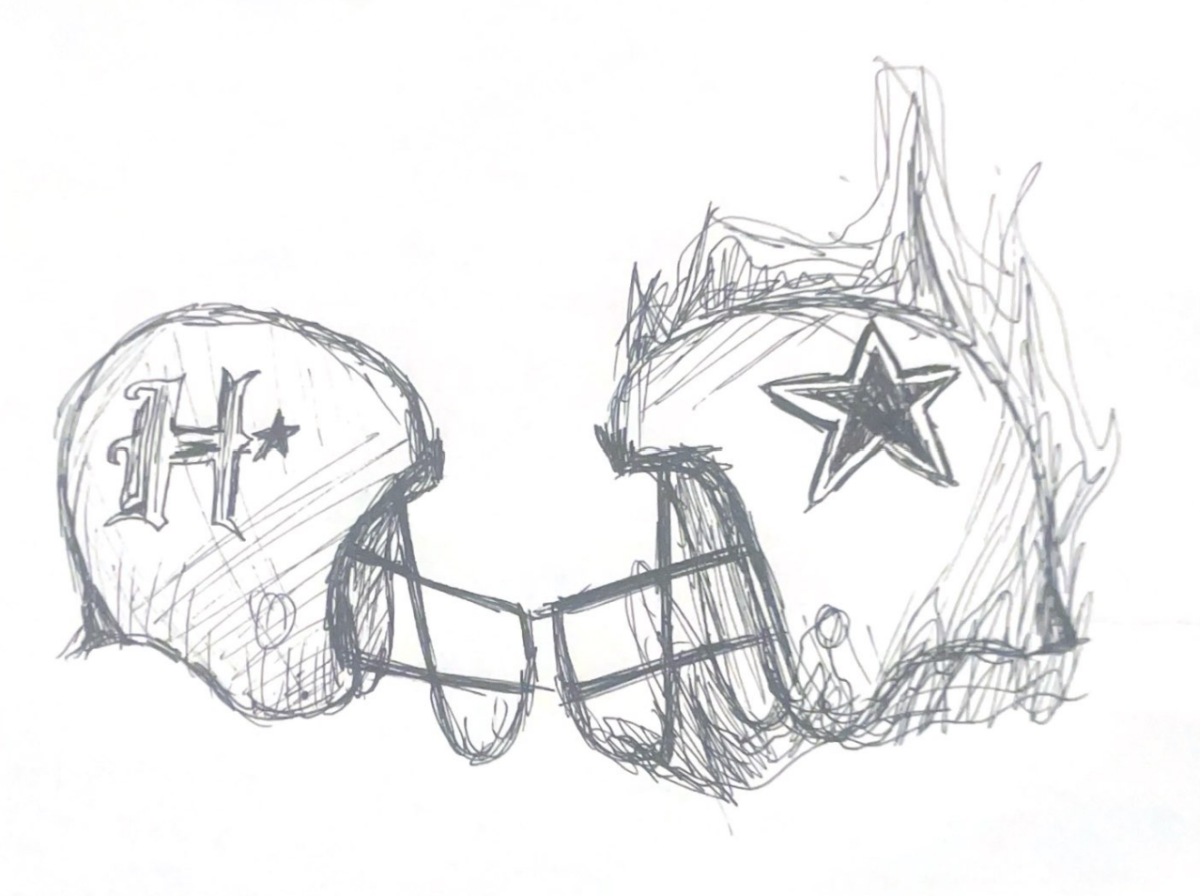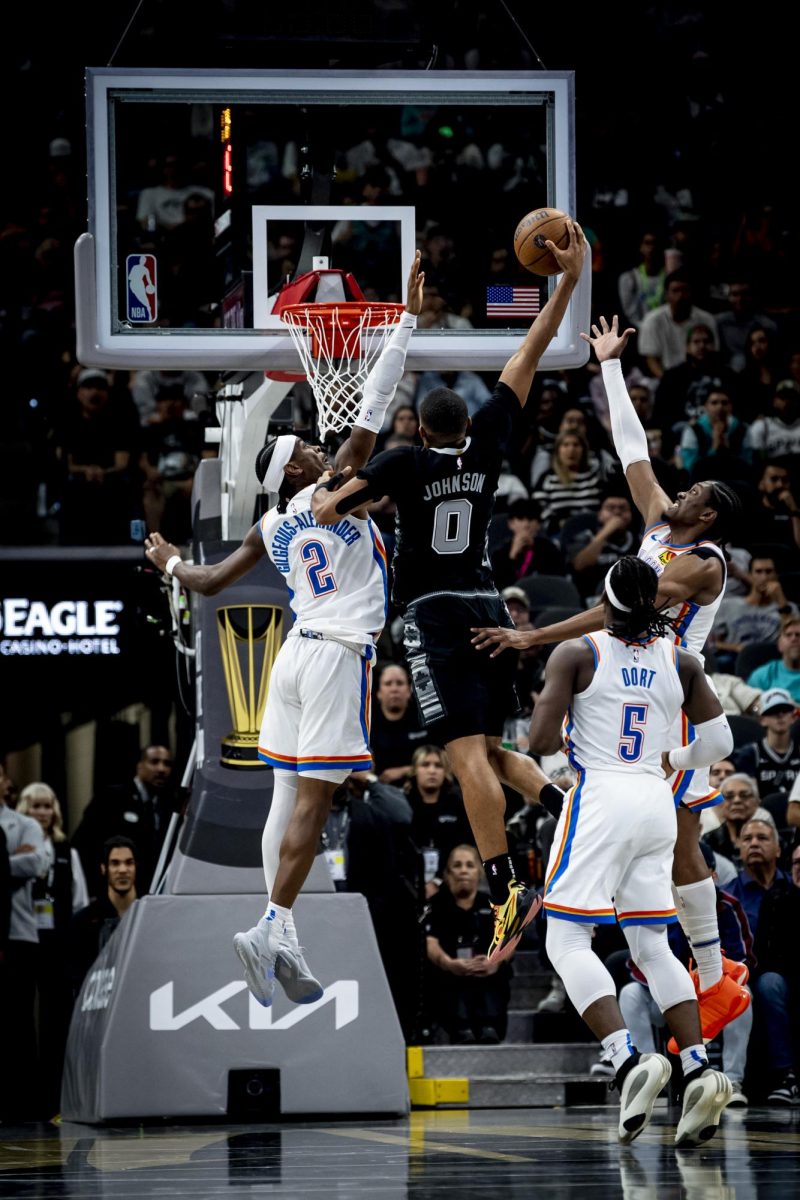We all have dreams. When we were young, we fantasized about future success in quixotic fashion. For myself, the dream consisted of athletic glory. I lived vicariously through the great athletes of my childhood “” Derek Jeter, Allen Iverson and Peyton Manning. The older you get, the more you realize how mortal these modern superheroes actually are. But when you were ten years old shooting baskets in your front yard, the end of the evening would stir the restless, imaginary crowd, and it became your mission to deliver a victory just like one of the greats. You weren’t simply watching Kobe carry the team on his back “” you were Kobe. Now, you may have needed a couple re-dos, but by the time you went inside, you had clinched the NBA championship.
At some point, we realize our limitations, and realign our desire for fulfillment with more realistic goals “” a quality degree, fulfilling career, close friends “” ordinary-person ideals. I still remember asking my dad when I was ten or so if he thought I would be qualified for Division I basketball. I felt I was exemplifying humility by asking and not telling “” of course I would be qualified, it was only a matter of time before Duke came knocking on our front door “” but my dad, never one to mislead, replied, “Maybe, if you’re lucky.” Ten-year-old me misinterpreted the following smirk as one I was a part of (smiling about my humility), not the subject of (it’s dawning on me that he was inwardly laughing at my incoming wake-up call.)
Everyone faces the fact that they can no longer compete at an “official” level, some merely sooner than others. The giants on SportsCenter who fill the nightly highlight reel with bodily brilliance will spend the majority of their life being an onlooker. As the scout tells Billy Beane in “Moneyball,” “We’re all told at some point in time that we can no longer play the children’s game, we just don’t know when that’s gonna be. Some of us are told at 18, some of us are told at 40, but we’re all told.”
The cold fact about our childhood dreams often escaping us regards the select few who do reach the pinnacle of athletic success. It’s what happens to these physical specimens when the spotlight forgets them: a truly terrible and seldom spoken-of issue in the world of sports. Sports psychologist Scott Goldman calls it an “under-recovery.” For the thousands of men and women who left Rio last week, it could be referred to as “post-Olympic depression.” The immense physiological strain of being an Olympic athlete often leads to an emotional letdown following the games, where the athlete can find themselves feeling empty and lacking worthwhile meaning.
Is this surprising? The insane amount of pressure these men and women are facing under themselves, and, especially in the modern social media age, from an entire nation, can be overwhelming (google Gabby Douglas social media “” it’s heartbreaking). Many athletes stake their worth on their performance in events that occur as often as a presidential election. It really is incomprehensible for you or I to empathize with this monomaniacal thought process. There’s a fantastic 1981 film called “Chariots of Fire,” based on the life of Harold Abrahams, the 1924 gold medalist in the 100-meter dash. In that unique mixture of honesty and insecurity, Harold’s character says at a crucial point, “I will raise my eyes and look down that corridor; four feet wide, with ten lonely seconds to justify my existence. But will I?”
Michael Phelps’ struggles with alcohol abuse are well-documented. Following the 2008 Olympics, he spiraled into that dreadful abyss of self-loathing and, consequently, addiction. He entered rehab in 2014, trained well for the Rio games (after hardly prepping for London in 2012), and performed admirably. Despite his recent triumphs, his subsequent claims that he is at peace “” that he has found himself “” are vacuous platitudes that are impossible to take seriously. He is saying exactly what he is supposed to say, what’s expected of him. Mark Spitz was Phelps before Phelps could tie his shoes. He dominated the “˜70s, setting seven world records in the Munich games of 1972. Since then, he cannot seem to settle on an identity. He attempted a comeback when he was 41 and failed. He’s tried acting, real estate and the “water business.” Most revealing, however, was his attitude while he was still swimming “” still a national icon. Before his seventh race in those ’72 games, he said, “I know I say I don’t want to swim before every event, but this time, I’m serious. If I swim six and win six, I’m a hero. If I swim seven and win six, I’m a failure.”
We look to these iconic television figures, who are barely real, living, breathing people to us, as symbols of how hope and hard work can pay off in our own messy, imperfect lives. When we were kids, we wanted to be them. Today, their play motivates us to believe that transcending our human limitations is feasible “” an inherently good thing. There is a raw and unmistakable beauty within their performances, be it Simone Biles on the balance beam, Phelps swimming the butterfly or Usain Bolt grinning as he wins yet another race. What we never quite realize is how pointless the day-to-day can seem to these men and women who have climbed the mountain “” they’ve tasted the forbidden fruit, so now what? Perhaps this is when their ugly, misshapen humanity reveals itself, returning them to earth from their former demigod status. DUIs, stints in rehab, sexual misconduct or even a failure to display the right amount of support for your teammates “” these things we can forgive, but not ignore. In reality, none of these athletes can attain the character standard we have set for them, and the microscope hovering over them certainly does not help matters.
Oscar Wilde, the Irish playwright, put it this way: “If the gods want to punish us, they answer our prayers.” The massive wall that star athletes climb is what most people spend their entire life pawing at like dogs. To a bizarre extent, it keeps us going. Grabbing hold of your wildest dreams is a terrifying thought. There are many who outwardly handle the burden with grace, and others who allow reality to sink deep into their psyche, causing those unpleasant, ubiquitous sensations of loneliness and inadequacy.







